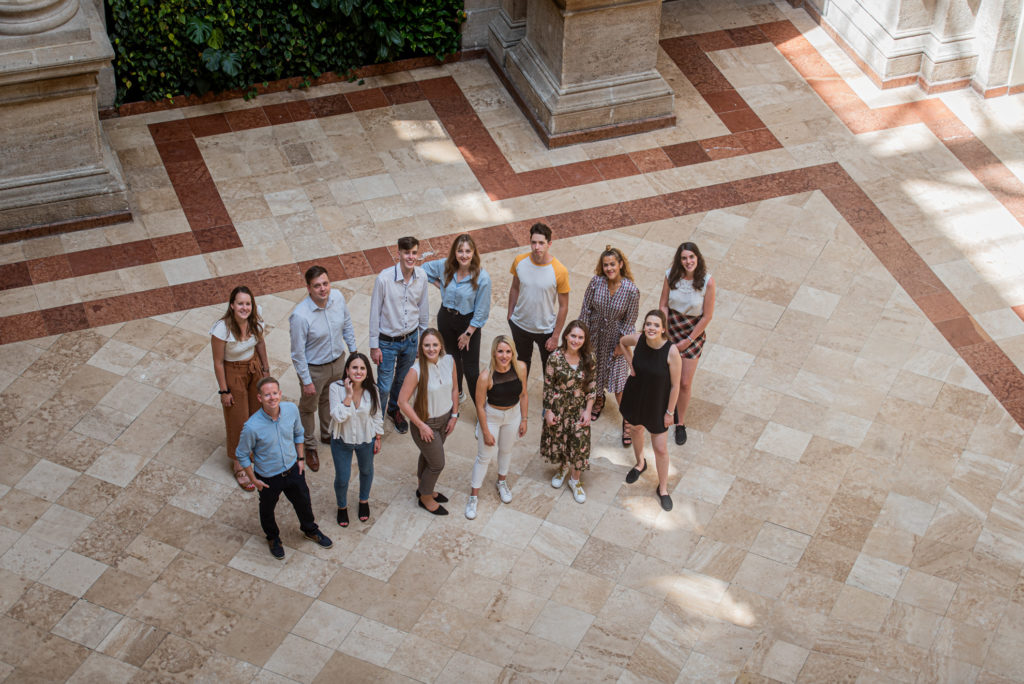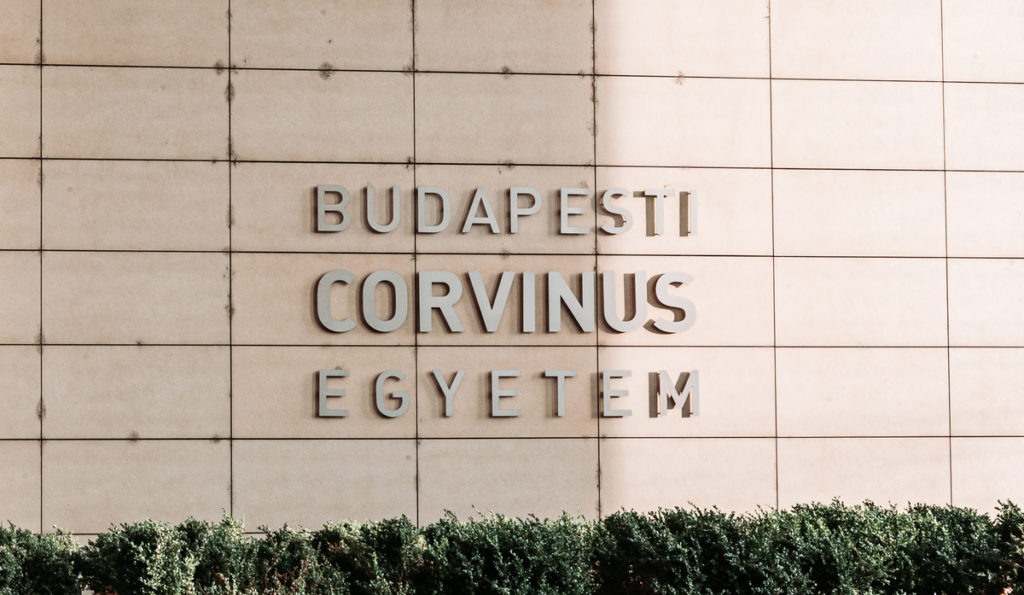Moving, university parties and the first exam period – Freshman year at Corvinus

Our journalist tells us how she coped with them through personal experience.
Busy streets, overcrowded trams, students rushing to university with coffee in hand. This was my first morning in Budapest, walking through the narrow streets of the city centre as a non-tourist. I was already living here and hadn’t realised that this would be my home for years to come, but my new address card and university enrolment reminded me of it.
Author: Beatrix Tepfenhart, cover photo: Benjámin Kristóf The original article is available on the Közgazdász online student blog.
For me, enrolling at Corvinus was also the beginning of Life with capital letters. At the end of August, I was sitting with my new flatmates in the middle of our downtown apartment. There was immense chaos: all sorts of things were scattered around the apartment; the noise of city life was coming in from the street, and we soon realised that if we didn’t cook, no one would be cooking dinner for us, as was so common in the family home.
At first, the novelty of things overrode everything. At nineteen, for the first time, everything I did was my own decision, no one interfered. We experienced the big firsts together with three of my flatmates: the first bean soup cooking, a joint IKEA trip, strategic discussions about how to make a university apartment more homely, late-night boardgames and lots of other everyday things that I really appreciated at the time. Phone calls home were a daily occurrence, and after a while my mum got used to me asking her questions in the middle of the day like how many potatoes to cook for four people and which flour she thought was the best for egg noodles.
Yes, for me, telephone communication was the only link to my family for weeks at a time. As someone from Transylvania, or more precisely Partium, I had been to the Hungarian capital many times before, because 330 km is not the end of the world, I thought. Then, when the pandemic made it almost impossible to travel across the border without an obligation to quarantine, I sometimes felt the opposite.
After six weeks apart, my dad was happy to note via video chat that “you are looking good my little girl, you haven’t lost any weight”. These conversations, funny comments, wisdoms of life were of enormous value in the light of Covid-19. Because while at the beginning it was good that I could do whatever I wanted, after a while it gave way to ambivalent feelings. I often wished that my dad would call me in the middle of a party and say that he’s coming to get me, even if it meant I couldn’t stay as long as my best friends. It would have also meant that I could have coffee with my parents on our terrace the next morning.
Despite the ambivalence, I still feel that I found my place very quickly, even though I was “a little different”. If we are open to our environment, to our peers, to our seniors, they will reciprocate the same openness. Whenever I introduced myself and mentioned that I came to Corvinus from Transylvania, I always received positive but varied reactions. Some people asked how often I see bears (not really a possibility in Satu Mare, by the way), others asked if I could get them some delicious fruit brandy.
One thing is for sure: starting university was a huge change for me, but it was also the best change that could happen to a nineteen-year-old girl who was still sometimes searching for herself.

A big part of this is that Corvinus University really does open up so many opportunities that choosing from them is one of the biggest challenges a fresher can face. Unique in the country, the institution has 50 student organisations, the Student Union and numerous other vocational collages, not to mention the demonstrator status, the many international opportunities (CEMS, Erasmus) or even the TDK.
It’s worth attending as many face-to-face events, info nights and information sessions as possible, because you can get a first-hand look at your options, rather than having to make a decision based on descriptions on a website. Moreover, we can also build up a number of contacts at these events, which I think is the most important thing. Getting to know people with similar interests is always an experience, and you never know who will be the people who will listen to you over a drink after a hard day.
Ideally, you come to university to study for your degree first and foremost, and only secondarily for the huge parties where sometimes you’re still dancing at 7am to a hit from 2010. So, needless to say, the first (two) exam periods also brought something new. I think many of us have realised that the learning methods used in secondary school may not be effective in higher education. I have evolved and changed in this too. I have learned that it is not worth leaving a 600-page book for the last two days before an exam, and that most economic subjects are logical, so the point is to think, to draw rational conclusions from the material, because it is much easier to grasp things in the long term than with cramming.
It is worth noting that coffee consumption in the apartment will increase over a 6-7 exam period, but if we manage our time well, we can easily lighten the load and avoid surprises. I think good time management is essential for the university years.
What I learnt as a fresher primarily: if you manage your 24 hours of the day well, you have enough time for everything, whether it’s at a student organisation, studying, friends, a weekend party or sports. I’ve always liked to lead an active life, and I never thought of university, or even secondary school, as the place where I can sit through classes and get the credentials I needed to get ahead in my career.
For me, university is an opportunity for self-education and great development, where, in addition to the compulsory lectures and seminars, I can do things I like and that motivate me in my dull everyday life, even every day, through the different (student) organisations.